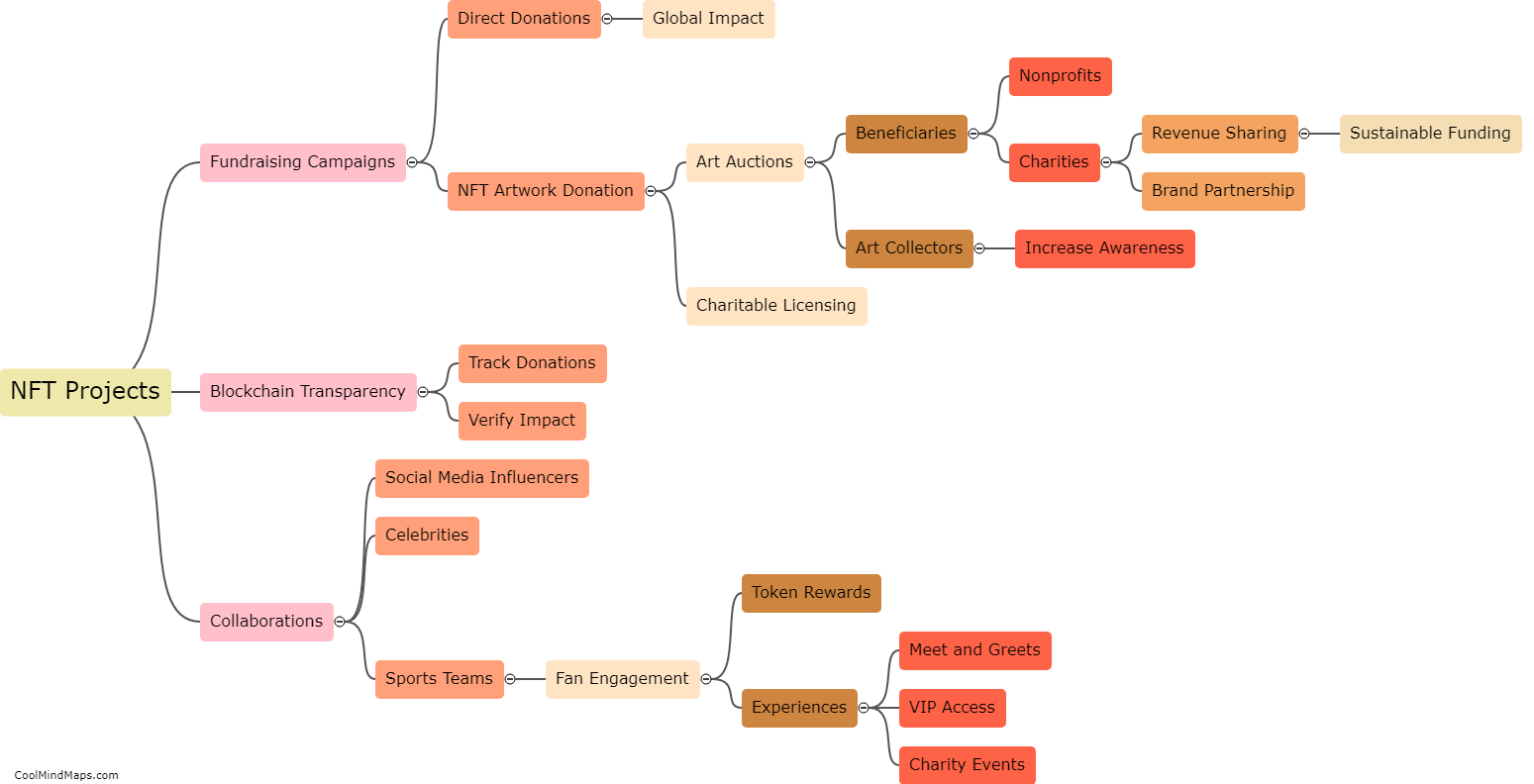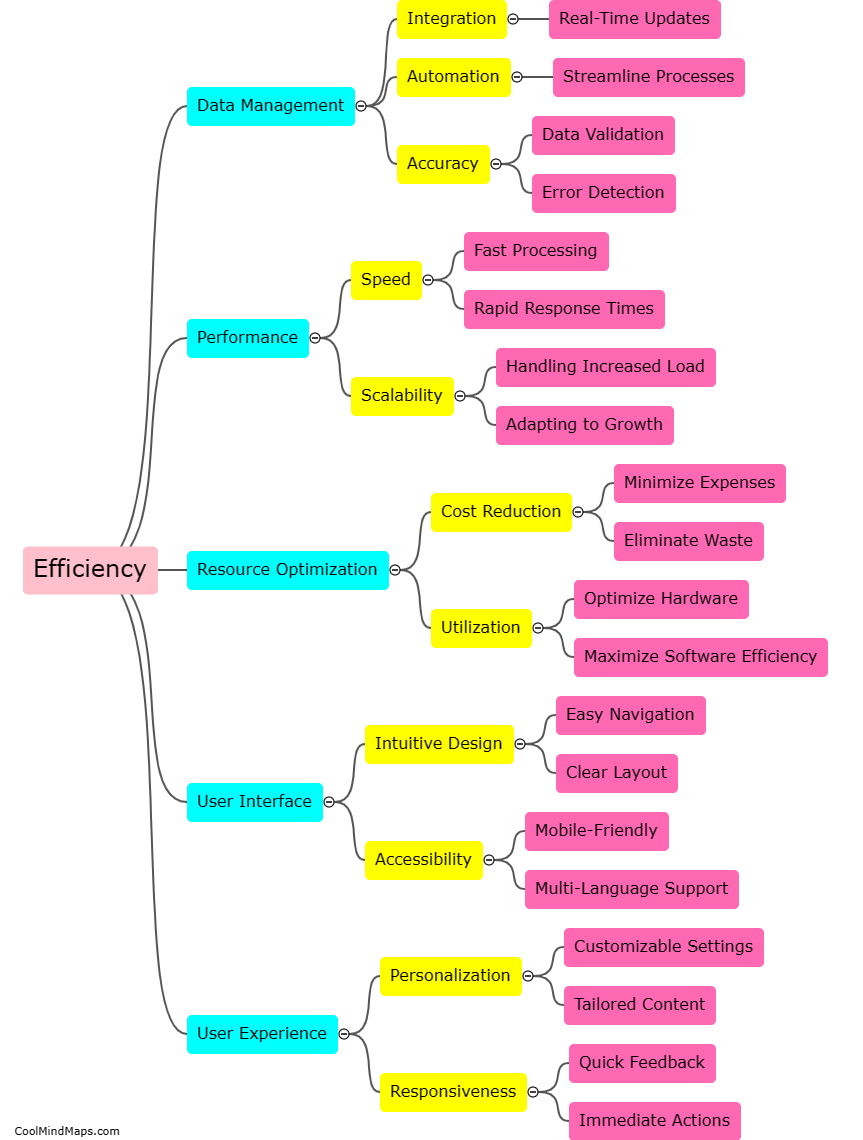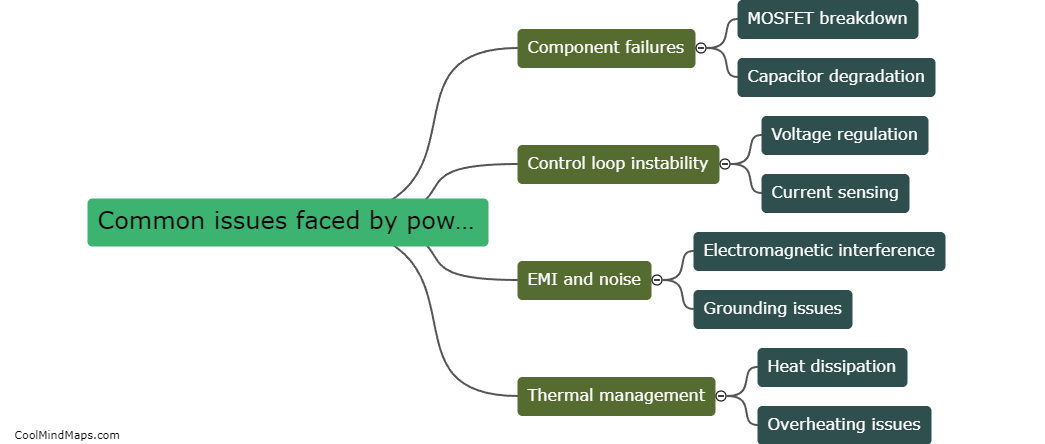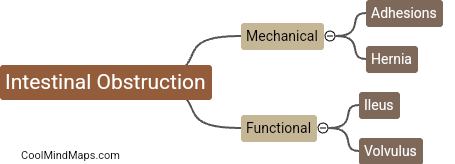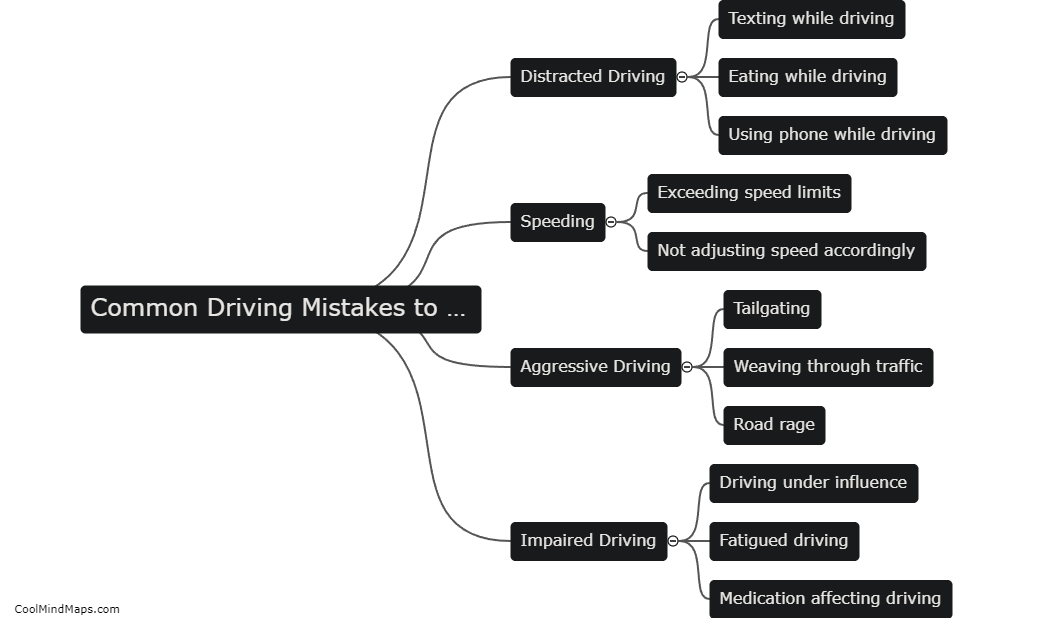How do power converters overcome overheating?
Power converters can generate a significant amount of heat during operation, especially when handling high power loads. To overcome overheating, power converters are designed with various cooling mechanisms such as fans, heat sinks, and thermal management systems. These components help dissipate heat away from critical components, ensuring that the converter operates within a safe temperature range. Additionally, some power converters incorporate temperature sensors and control algorithms to adjust operating parameters and prevent overheating before it becomes a problem. Proper design, component selection, and efficient cooling methods are key factors in ensuring the reliability and longevity of power converters.

This mind map was published on 10 June 2024 and has been viewed 222 times.


